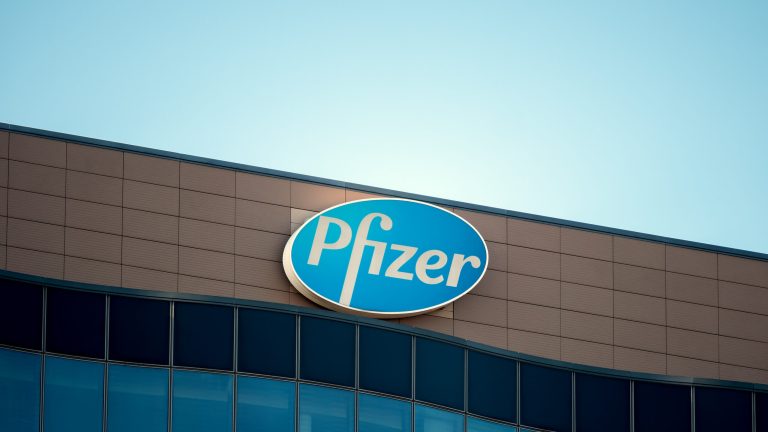In a bid to reshape Pfizer’s future, activist investor Starboard Value has acquired a stake worth approximately $1 billion, according to reports.
The move comes as the pharmaceutical giant faces mounting challenges, including declining demand for its Covid-19 products and increased competition.
Starboard, known for its involvement in strategic shifts at underperforming companies, is expected to push for changes at the New York-based drugmaker.
As of Friday, Pfizer’s market capitalization stood at around $162 billion.
Once a top-performing stock thanks to its role in developing the first Covid-19 vaccine, Pfizer has seen its share price drop by nearly half from its 2021 peak.
Despite this decline, Pfizer’s stock has remained relatively flat this year, in contrast to a 21% rise in the S&P 500.
Former leadership brought in to revamp Pfizer
In its efforts to revamp Pfizer, Starboard has reportedly engaged two former company executives, Ian Read and Frank D’Amelio, who have shown interest in assisting with the investor’s agenda.
Read served as Pfizer’s CEO from 2010 to 2018 and was responsible for appointing the current CEO, Albert Bourla.
D’Amelio held the role of Chief Financial Officer from 2007 to 2021, providing them both with extensive knowledge of the company’s operations and history.
However, the specifics of Starboard’s strategy and discussions with Pfizer remain undisclosed, as per the reports.
Investor pressure on Albert Bourla’s leadership
Pfizer’s CEO, Albert Bourla, has been under increasing pressure from investors as the company grapples with falling sales for its pandemic-related products.
The company misjudged the long-term demand for Covid-19 vaccines and therapeutics once the global health crisis eased, leading to a significant revenue gap.
Despite its groundbreaking success in delivering the Covid-19 vaccine and its antiviral drug, Paxlovid, Pfizer has struggled to sustain the momentum.
The company generated over $100 billion in revenue in 2022, driven by its pandemic products, but demand has since plummeted.
The company’s core portfolio has yet to compensate for the loss, with several key products like the blood thinner Eliquis and arthritis treatment Xeljanz facing looming competition from lower-cost alternatives in the near future.
Adding to Pfizer’s challenges, the company’s initial attempt to develop a weight-loss drug faltered, missing out on the booming market that competitors Eli Lilly and Novo Nordisk have capitalized on.
However, Pfizer is continuing its efforts, advancing a once-daily version of its anti-obesity pill.
Focus shifts to oncology amid Pfizer’s mounting challenges
Pfizer is now betting heavily on its oncology pipeline, particularly after its $43 billion acquisition of biotech company Seagen last year.
Seagen’s cutting-edge cancer therapies, known as antibody-drug conjugates (ADCs), are expected to generate up to $10 billion in annual sales by 2030, according to Pfizer’s projections.
The company has also used its Covid-19 windfall to make other sizable acquisitions, including Arena Pharmaceuticals for $6.7 billion and Biohaven Pharmaceutical for $11.6 billion.
It also spent $5.4 billion on Global Blood Therapeutics, although it recently had to pull all batches of Oxbryta, a sickle-cell treatment it acquired in the deal.
Despite these efforts, some analysts have criticized Pfizer for a perceived lack of focus in its mergers and acquisitions strategy.
Under Ian Read’s leadership, Pfizer was known for narrowing its focus on core areas like vaccines and cancer therapies.
However, Bourla has taken a different approach, significantly ramping up research and development spending while divesting non-core businesses, including its off-patent drug division.
Mixed results and ongoing cost-cutting efforts
Pfizer’s current share price remains below its 2019 level when Bourla first took the helm, signaling investor frustration.
Late last year, the company warned of a potential revenue decline for 2024 and unveiled a $3.5 billion cost-cutting plan to be executed by the end of next year.
In May, the company introduced a new multi-year initiative aimed at further trimming expenses.
In July, Pfizer adjusted its full-year outlook upward, buoyed by newly acquired assets and recent product launches, which helped offset the decline in sales of its Covid-19 vaccine, Comirnaty.
“We are progressing on all cylinders,” Bourla told The Wall Street Journal in an interview in July.
Starboard’s record in pharma and beyond
Starboard, helmed by Jeff Smith, has a long history of driving strategic change across various industries, particularly in the technology sector.
The firm’s previous attempts to shake up the pharmaceutical industry include its unsuccessful effort in 2019 to block Bristol-Myers Squibb’s $74 billion acquisition of rival Celgene.
Starboard has also secured board seats at healthcare-technology company Cerner.
Now, with its sizable investment in Pfizer, Starboard is poised to influence the direction of one of the world’s largest drugmakers, potentially reshaping its future in a rapidly evolving pharmaceutical landscape.
The post Starboard Value’s $1 billion move: will Pfizer see a much-needed revival? appeared first on Invezz

